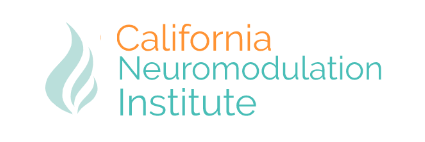SELF-GUIDED PSYCHOTHERAPY
Psychotherapy can be generally defined as any clinical intervention for a mental health-related condition or mental state that involves the explicit (and structured) use of psychological principles, and targeting psychological experience. It seeks to establish enduring changes in one or more of a myriad of aspects of experience, including symptoms, overt behavior, cognition, self-esteem and identity, and engagement of the environment, especially in its social aspects. Because each of these (and indeed every aspect of psychology) arises from the structure and function of the brain, any intervention that seeks to modify these phenomena necessarily alters the brain to mediate the therapeutic effect. Nonetheless, psychotherapies can proceed and be effective without direct reference to the brain, because they are psychological interventions targeting psychological phenomena.
The vast majority of psychotherapy offered in the community is conducted by licensed clinicians with formal training, and this remains an important treatment option that is typically available to most individuals in the U.S. with health insurance (especially private insurance). Nevertheless, there is increasing evidence for the efficacy of psychotherapies that are self-guided by the patient (i.e., without a therapist present), and which are derived from well-established principles that are employed in other clinical settings. The two most well-developed self-guided programs are based on Cognitive-Behavioral Therapy (CBT) and Mindfulness, respectively. It is important to note that self-guided psychotherapy is generally not considered a substitute for psychotherapy conducted with a trained, licensed psychotherapist. Indeed, the evidence available to date suggests that the latter remains somewhat more effective for most conditions in which they have been studied. Nevertheless, there is adequate evidence to suggest that self-guided psychotherapy has a favorable cost to benefit ratio, in other words, that it is worth doing, depending on the circumstances of the treatment (e.g. is a licensed therapist available? How would the patient spend that time otherwise?).
We have also had an abiding interest in the relationship of brain function to psychological phenomena such as emotional experience, cognition, behavior, and social relationships, in a range of psychiatric conditions. The results of our research can be found by visiting our News & Research page, or searching PubMed for our publications and other scholarly work (https://www.ncbi.nlm.nih.gov/pubmed/?term=minzenberg+m). We maintain a strong interest in how psychological and brain-directed interventions can work together, and to this end we have implemented self-guided psychotherapy interventions to couple with TMS and esketamine treatment protocols. The psychotherapy intervention is not required for achieving benefit from TMS or esketamine, and we will offer it according to your interest, rather than mandate it as a part of your treatment. In addition, we strongly emphasize that this should not be viewed as a substitute or replacement for more conventional psychotherapy. In fact, we generally strongly support our patients’ engagement in therapy with outside providers, and we will work to both coordinate that treatment with your care in our program, and maintain communication with your therapist, as needed during the course of your treatment with us. Psychotherapy is generally very compatible and complementary to biomedical interventions, and we will encourage you to obtain or maintain this as you are able. We are also happy to discuss more with you about how to utilize these therapies while in concurrent TMS or esketamine treatment.
Clinical Conditions That We Treat
Depression
Depression is very common and can take many forms. It is essential to have a thorough evaluation in order to reach an accurate diagnosis, as this will determine how to choose the best treatment of the many that are available. Treatment-resistant depression (TRD) is a special form of depression where individuals do not experience adequate relief with conventional treatments. We can offer these individuals considerable expertise in the use of TMS, esketamine, and medication combinations to achieve better outcomes.
Bipolar-Spectrum Conditions
Many individuals who experience depression also experience clinical states referred to as mania or hypomania. These persons should be carefully distinguished from those who experience depression alone (unipolar depression) because the treatments and other considerations may be very different. We offer a thorough evaluation to establish an accurate diagnosis so that the right treatment can proceed.
Anxiety Disorders
Anxiety is quite common, and like depression, there are diverse treatments available. We treat individuals with anxiety syndromes such as post-traumatic stress, panic disorder, generalized anxiety disorder, and obsessive-compulsive disorder.
Get In Touch
Call
New Patients & Non-Urgent Calls from Established Patients: 510-990-5070
Urgent Calls from Established Patients: (925) 268-8211
Address
895 Moraga Road, Suite 15 Lafayette, CA 94549
Hours
Monday 3:30-6:30 PM
Tuesday 2:00-6:30 PM
Wednesday 3:30-6:30 PM
Thursday 1:30-6:30 PM
Friday 1:30-6:30 PM
Saturday 10:00 AM to 2:00 PM
